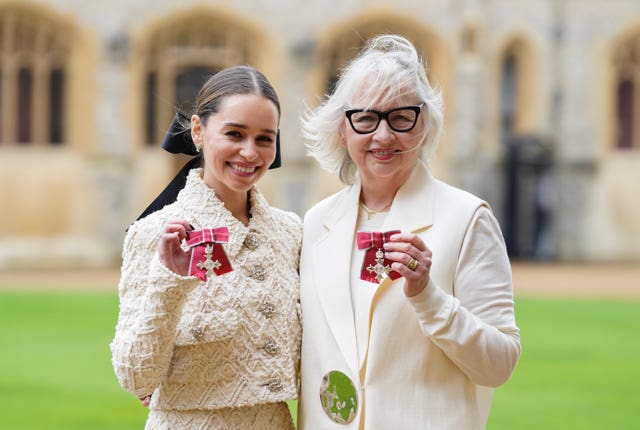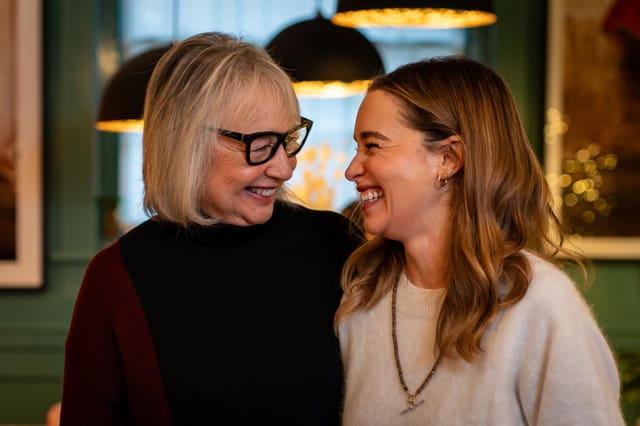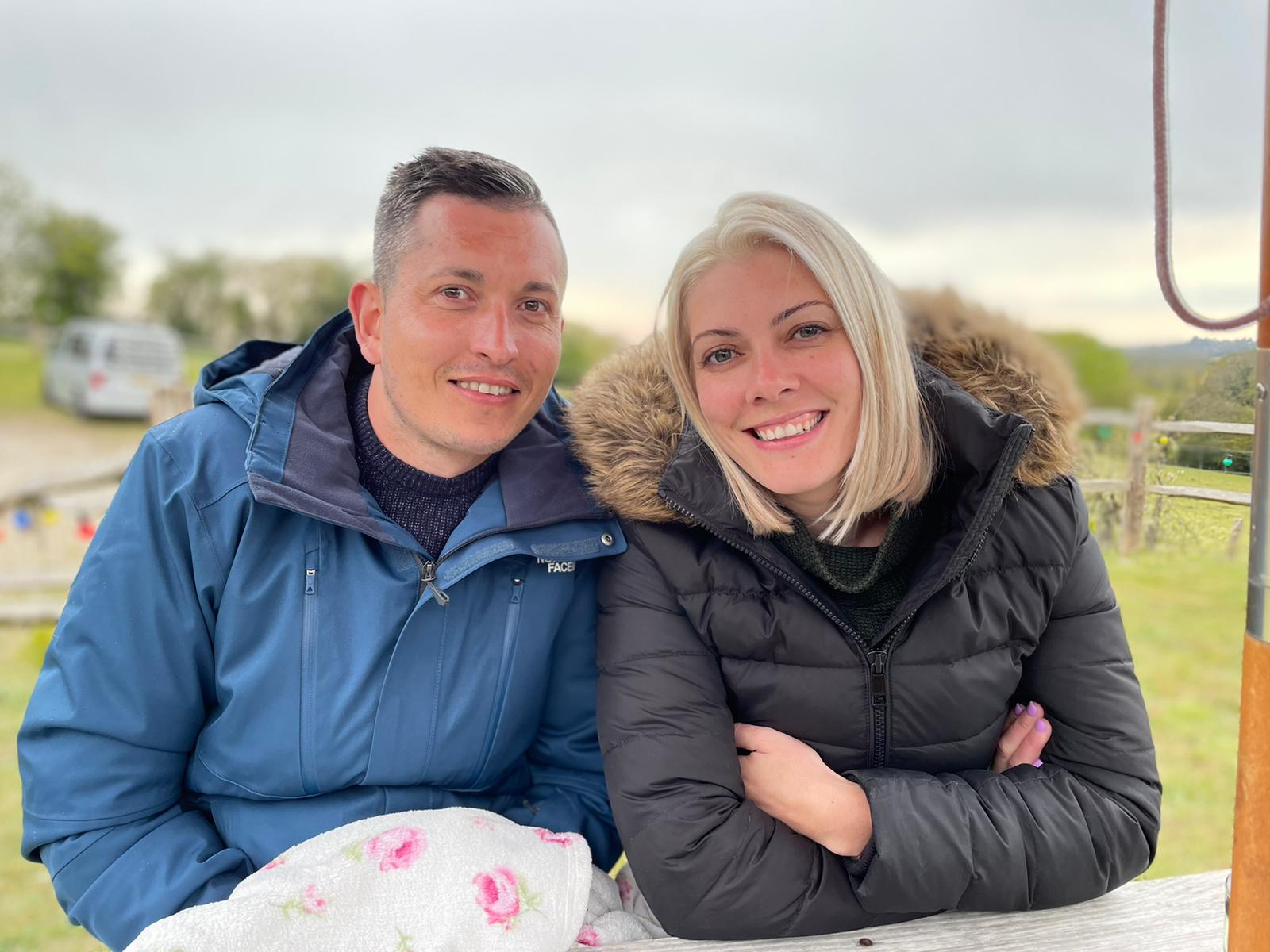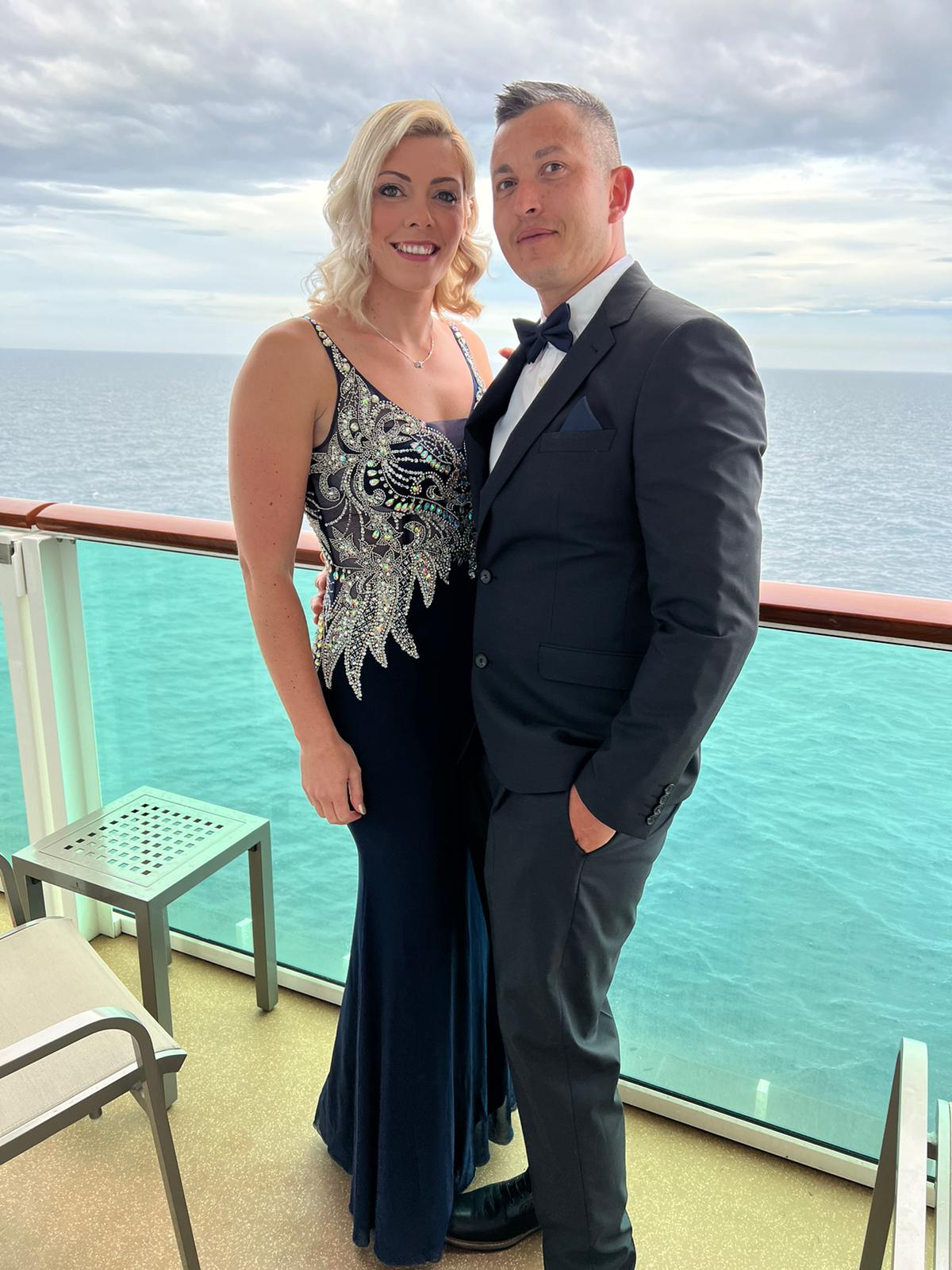‘Misconception’ over stroke needs addressing, says Emilia Clarke’s mother
Jenny and Emilia Clarke set up the charity SameYou after the actress suffered a brain injury.

Young stroke survivors are “set up to fail” because of a lack of support when they leave hospital, Emilia Clarke’s charity has warned.
The charity, set up after the Game Of Thrones star suffered a brain haemorrhage when she was just 24, said there is a “misconception” that stroke affects only elderly people.
After recovering, Clarke and her mother Jenny set up SameYou to help people with brain injuries.
Now the charity is calling for more to be done to help young stroke survivors.

Mrs Clarke said: “Young stroke survivors are being set up to fail by abandoning them when they leave hospital.
“It’s back home where the hard work, frustration, fear and the challenges really begin, with little or no support to rebuild their lives.
“There is a great unmet need and a gap in service provision which can have major implications for a young adult who may want to stay in employment, socialise with friends and be independent. That support pathway just doesn’t really exist.”
The mother and daughter duo were made MBEs earlier this year for their work helping people with brain injuries.
Clarke, now 38, previously told the PA news agency that she felt “fragile, sensitive and scared” after her brain injury and was shocked to find out how understaffed rehabilitation services are – with rehab becoming a key focus for the charity.
Jenny Clarke said: “In terms of what we are advocating for, there needs to be specific solutions available to help young stroke survivors.
“This includes sharing information about what has happened to them and an immediate plan for their recovery.
“They need essential mental health support and the opportunity to access enhanced recovery services to give them the vital tools to be well and live fully.
“There is a massive gap between what survivors and their families say they need and want, and what is currently being offered.
“Rehabilitation is undervalued and under-prioritised and that’s clearly got to change as a key component of universal health coverage.
“The situation at the moment is, quite frankly, frightening and we are letting young survivors down.”

One ex-couple described how a lack of support after stroke led to the end of a 10-year marriage.
Chris Moon was 29 when he suffered a stroke.
He has described how he faced limited access to speech therapy, a lack of support for mental health or returning to work, and a lack of couples therapy.
Mr Moon said he and his ex-wife Hannah were left to navigate major hurdles alone.
The builder from Sussex, who is now 37, said: “I had to fight to get back everything that was important to me.
“Getting my confidence back with nobody to help you or guide you is impossible.”
“With reading and writing, it’s not that I have exactly given up … but I have tried so much, even reading kids’ books, and I now have to rely on tech to read a little text at a time.”
He added: “I was doing really well with NHS speech therapy – but nine months later it just stopped. They told me I should have only had three months of support. Even with nine months of support I could only speak 20 words and couldn’t say a proper sentence.
“So I couldn’t do any speech therapy, I couldn’t work, I couldn’t say any sentences. I really struggled for well over a year to communicate before finding someone else who could help me.
“I felt depressed. Everyone our age works so it’s not like you can see people. I was desperate to get up and running again.”

Mr Moon said there was no help with his mental health and when he tried to get mental health support from his GP he could not speak to describe the problem.
He added: “I woke up in hospital and thought I would get better quickly, that it was just a hiccup.
“I never thought that five years later I would be having speech therapy and still trying to get words out.”
After a few years he managed to find a rehabilitation centre for adults with an acquired brain injury.
Mr Moon said he is back working and he now feels “back where I need to be”.
Mrs Moon, 36, an environmental insurance broker, said: “It soon became apparent that both of us needed a different kind of support, real-world support, to get our lives back on track. You need this to give you hope.
“But the stark reality is the care after a stroke isn’t the right fit for young sufferers. There is not enough support to get back to everyday life.”
She added: “There was no face-to-face couples therapy as we couldn’t afford it or we were told it wasn’t available. We separated last November.”
Mr Moon continued: “Couples therapy is also essential. It’s so important for the survivor’s carer and loved one. I think it hurt Hannah more than it hurt me.”

Mrs Moon turned to SameYou for support and now champions the charity’s SameChat scheme, a programme that provides peer support for young survivors and their loved ones.
More than 88,000 people survive a stroke every year in the UK, but surviving a stroke is just the start of a “long and traumatic battle to finding their way back to life,” according to the Stroke Association.
NHS national clinical director for stroke David Hargroves said: “Suffering a stroke is often life-changing for patients and their loved ones and does not just affect older people.
“Thanks to the dedication of hardworking health and social care teams delivering improvements in NHS stroke care, more young people than ever are surviving a stroke, but we recognise the ongoing physical and mental health support that an increasing number of stroke survivors may need.
“The NHS is committed to working with charities to adopt new ways of working so that everyone who has had a stroke may access individualised rehabilitation and life after stroke support, including NHS services for follow-up care which continues to help thousands of people.”
– In April, Hannah Moon is leading a fundraising cycling and hiking challenge in Ibiza. For more information visit: www.sameyou.org/bike_and_hike_2025





